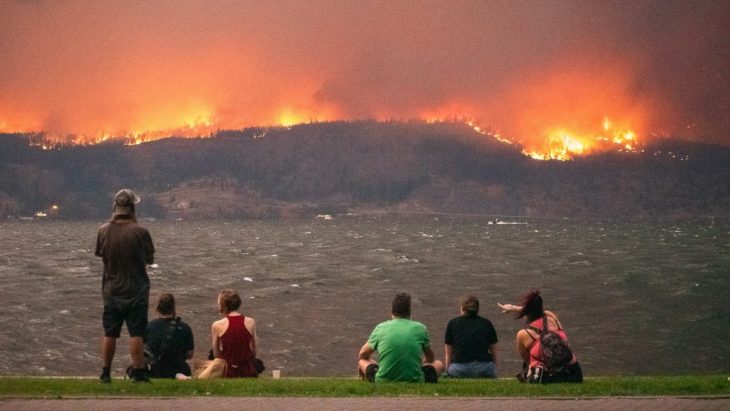
This summer has been a terrible lesson in how quickly our lives can change. Floods in Nova Scotia, wildfire smoke from Northern Quebec blanketing major cities, storms in central Canada, and unprecedented wildfire disasters in British Columbia, northern Alberta and the Northwest Territories. In almost every part of Canada, this has been a summer of sudden worry.
This is when information — trusted, local, and up to the minute — is essential. And it’s Canadian media that provide that information.
It is why, last month, I wrote to Meta, calling on them to stop blocking access to all Canadian news on Facebook in communities facing emergencies.
People in these communities, especially in the North, have come to depend on Facebook to easily find and share the timely information they need to make decisions and stay safe. In calling for Meta to lift its ban, the Union of B.C. Indigenous Chiefs spoke of its importance: “Social media has become a community organizing tool that has a relied-upon, easy infrastructure for sharing news… not being able to share news has communities disoriented and puts lives at risk.” These communities depend on this platform. That’s why CBC/Radio-Canada uses it too. With so many facing evacuation in rapidly changing emergencies, access to trusted information can be a matter of life and death.
In these emergencies, people depend on journalists on the ground; journalists who are committed to getting that critical information to them. When the evacuation order came in Yellowknife last month, our reporters remained behind, on the air as long as they could, ensuring those communities had the latest details they needed.
Across the Okanagan and Shuswap in BC, CBC teams have been ensuring critical live programming across all of our platforms to inform residents who are on the move. In the Ka’a’gee Tu First Nation community of Kakisa Lake, it was CBC television which gave them the first notice that they were under an evacuation order because their communications tower had been knocked out.
Informing Canadians is a vital part of our mandate. We have trained journalists in more than 80 communities all across the country. They are backed by our news editors, our Journalistic Standards and Practices and our two independent ombudsmen, so Canadians know they can trust the information they provide.
We created CBC Lite so that Canadians can get vital news and information especially if they are on the move. It provides text-based news, without links, images, and video, so that users get just the most important information they need, using minimum data. That speeds up browsing on slower connections and saves power on mobile devices so that when people are forced from their homes and their phone batteries are running low, they can still get the essential information they need. CBC Lite’s traffic has doubled since last year, with more than 170,000 visitors in August. More than 10,000 people used it to tune into CBC Radio One Kelowna on the weekend of August 18, when the B.C. premier announced a provincewide state of emergency.
It is our physical presence in communities that makes the public broadcaster vital. Over the past few years we have been trying to expand that presence, shifting resources and finding cost savings so that we could put journalists in communities like Kingston, Lethbridge, Grande Prairie, Cranbrook, Nanaimo, and a dedicated reporter in the North for The National.
But Canadians are best-served by a healthy, diverse Canadian news ecosystem, with as many news outlets as possible. It’s why we created our Local News Directory, where Canadians can find and link to local media in their community. There have been over 11,000 visits to that site just in the last month alone. We want all Canadians to have more access to quality news. These direct links are particularly important when Meta blocks sharing of news links through its platforms.
This is how CBC/Radio-Canada serves Canadians: by anchoring a Canadian news ecosystem; by being in communities; and by ensuring Canadians get the news they need, when they need it. Their public investment in CBC/Radio-Canada is an investment in Canada.
This is one important reason why public broadcasting is worth fighting for. There are others: our support for Canadian artists and creators; our role in supporting French culture across the country; our role in reflecting Canada’s diversity and in furthering truth and reconciliation with First Nations, Métis and Inuit Peoples. Over the next few months I will be sharing more about the value the public broadcaster offers Canadians.
This is part 1 in a series of Cartt-exclusive commentary pieces from Catherine Tait, head of the public broadcaster. In it, Tait shares her thoughts on how the national public broadcaster plays a central role in Canada’s media industry.



